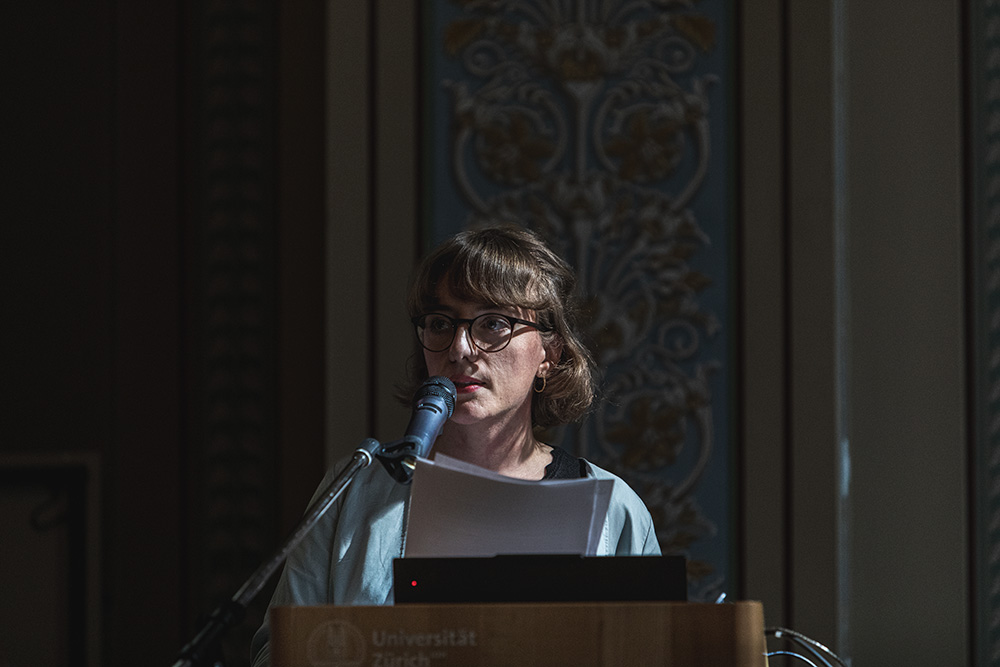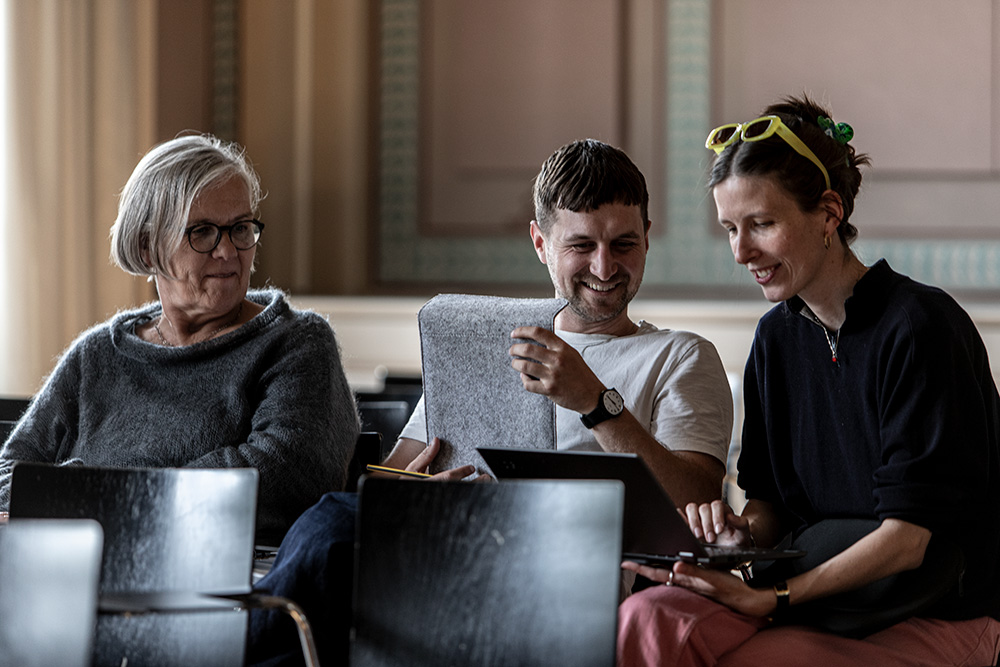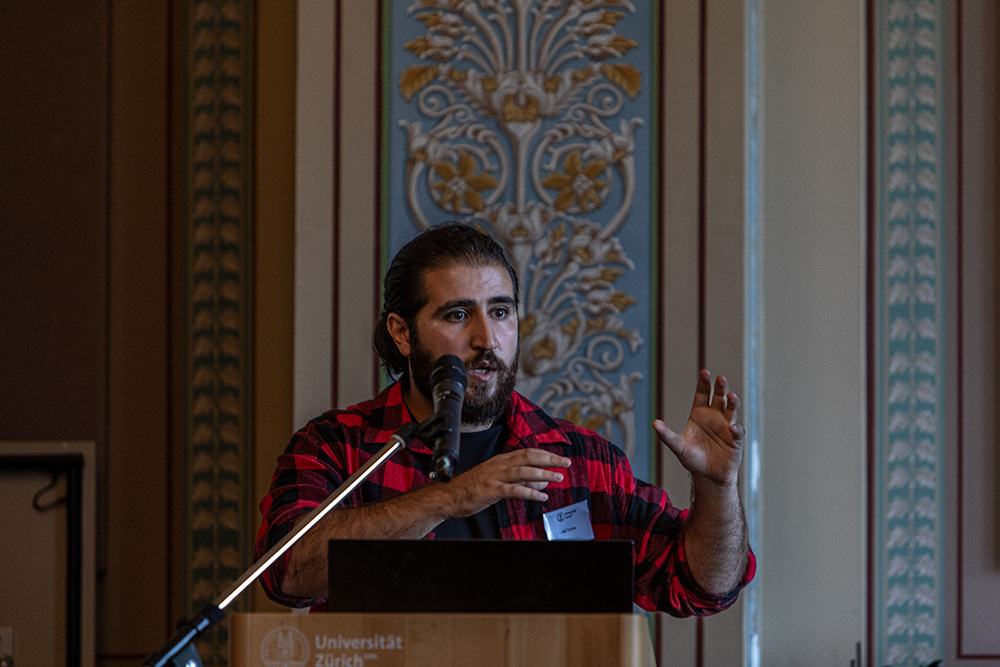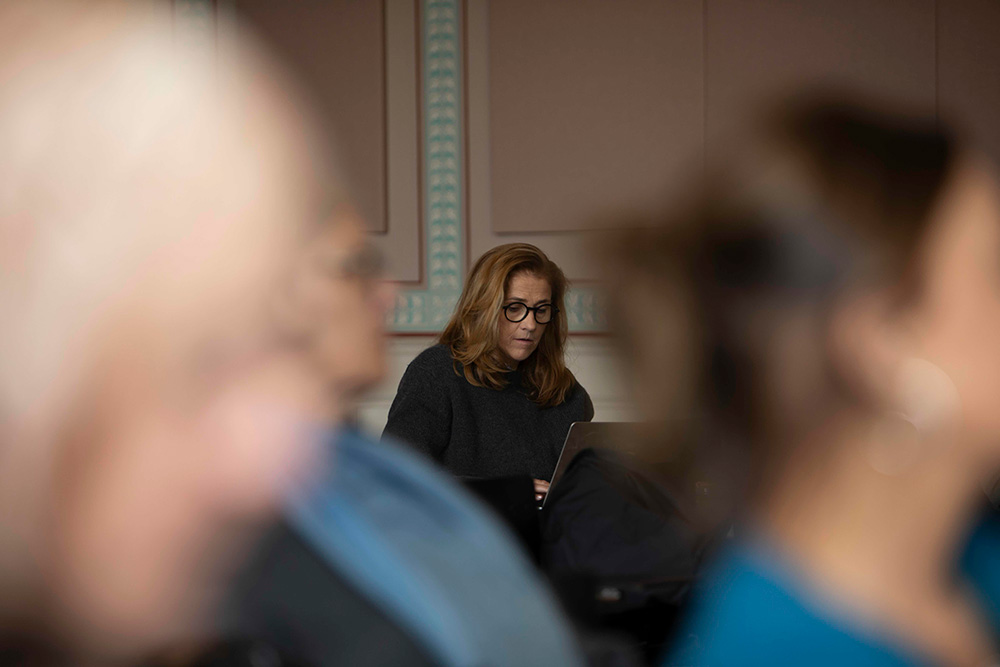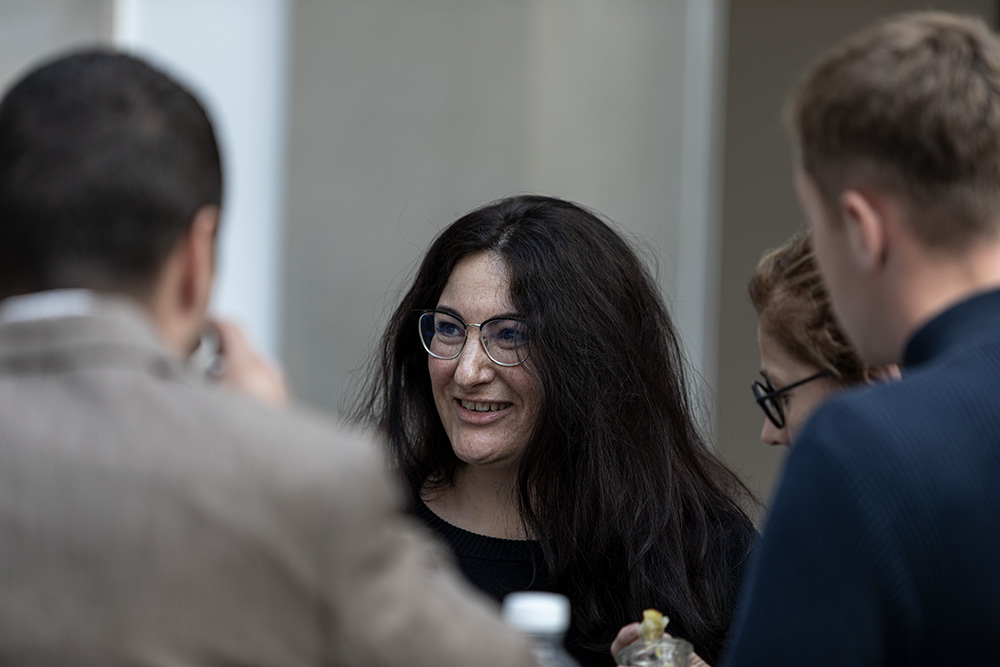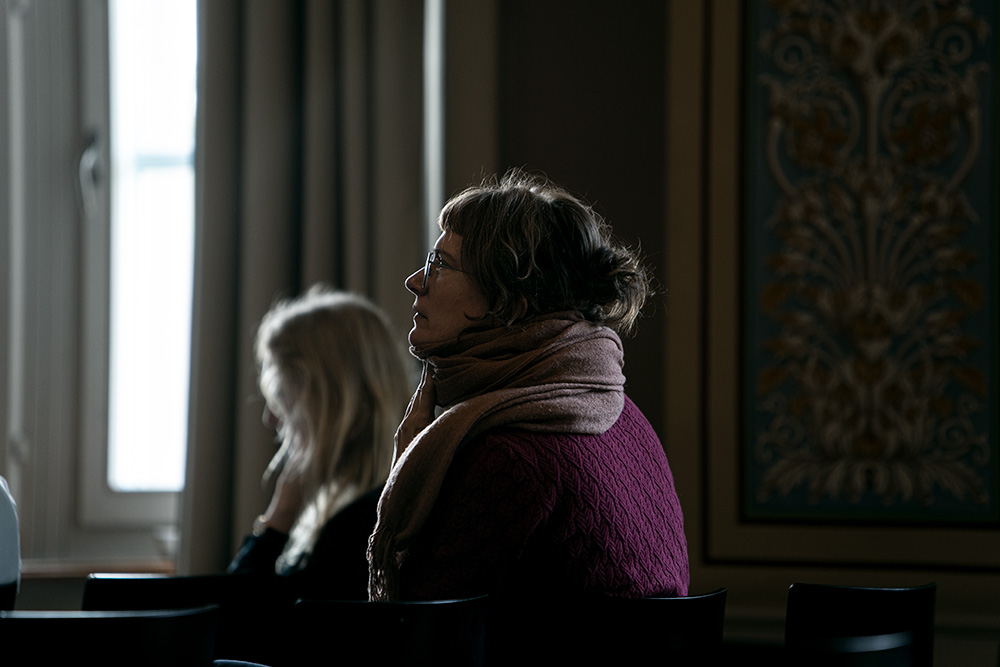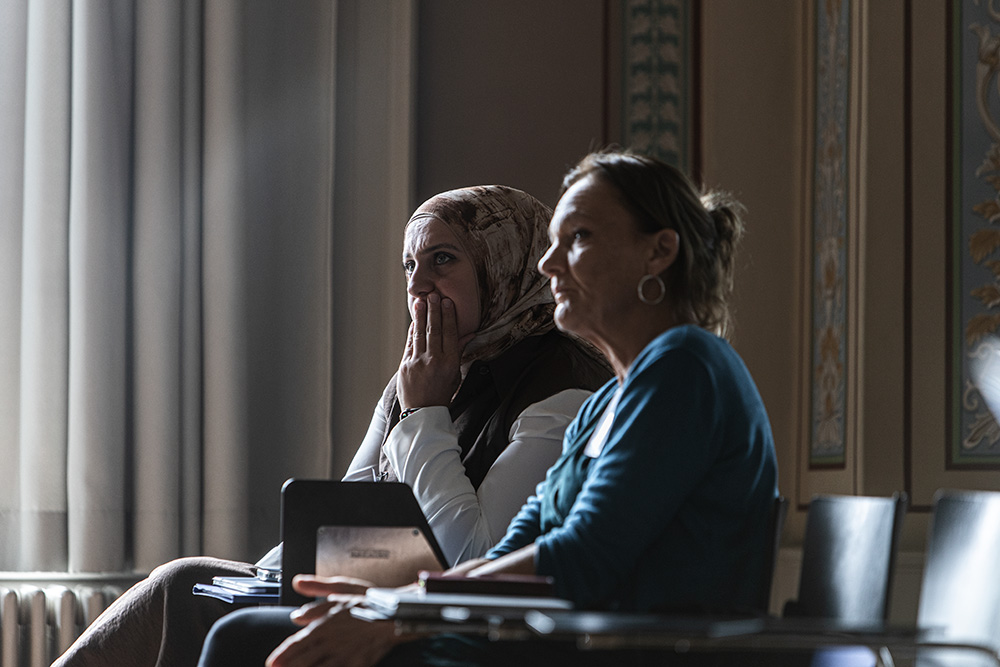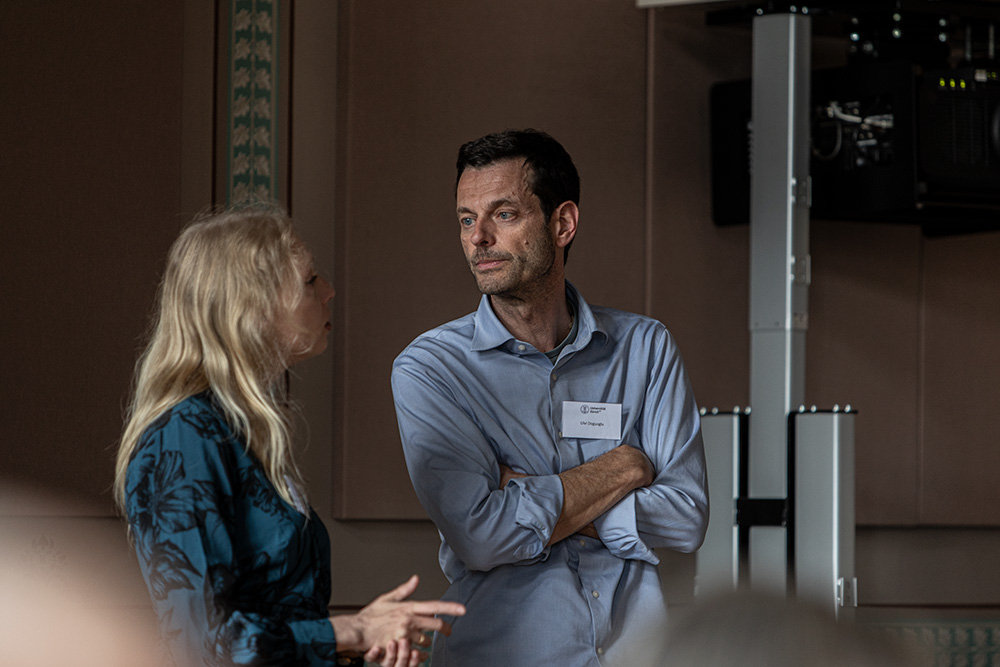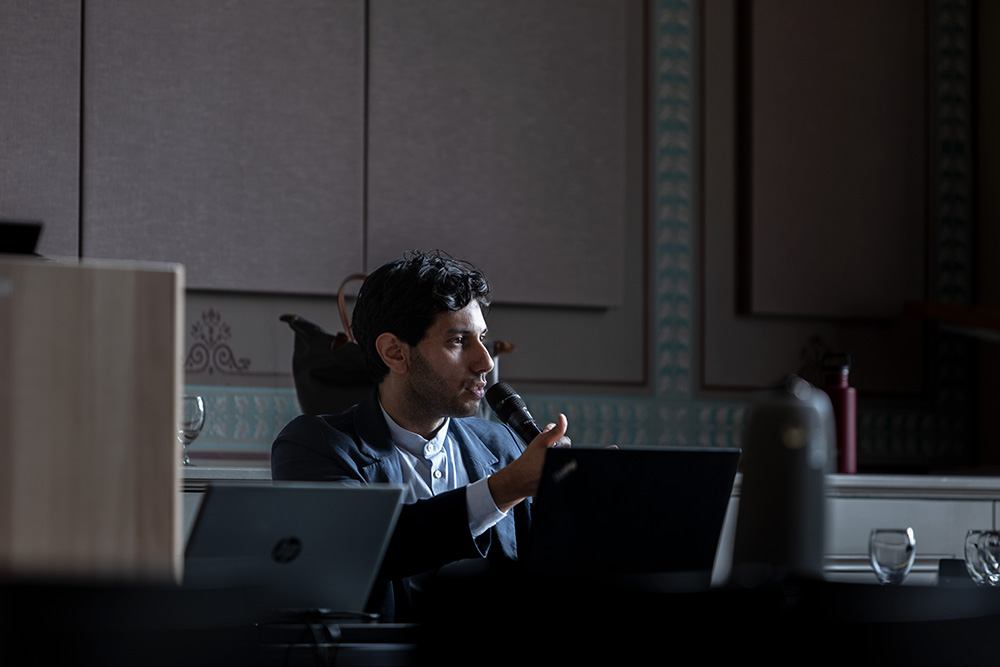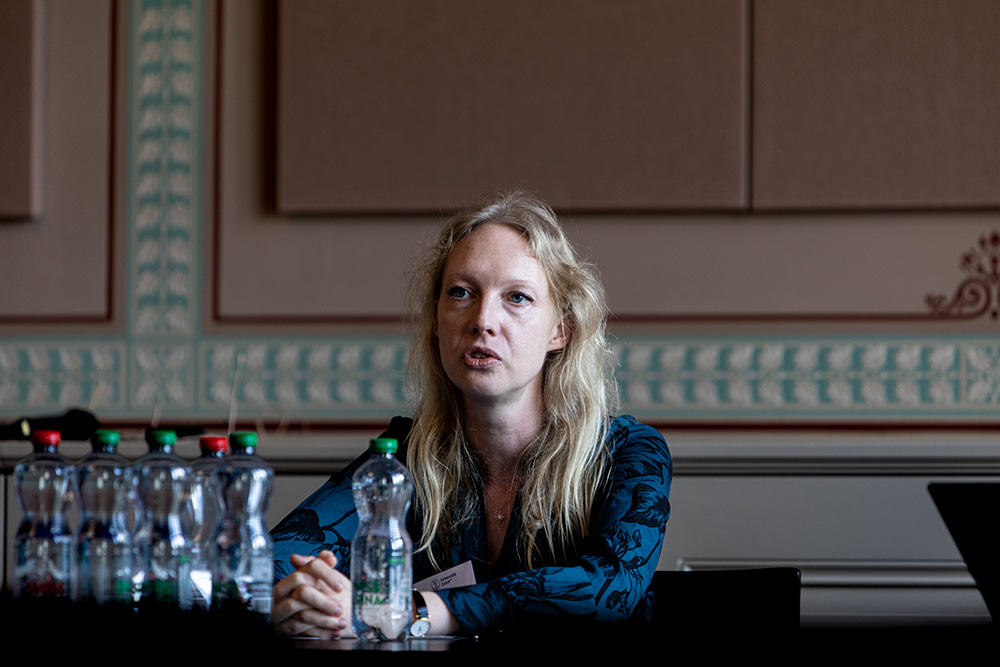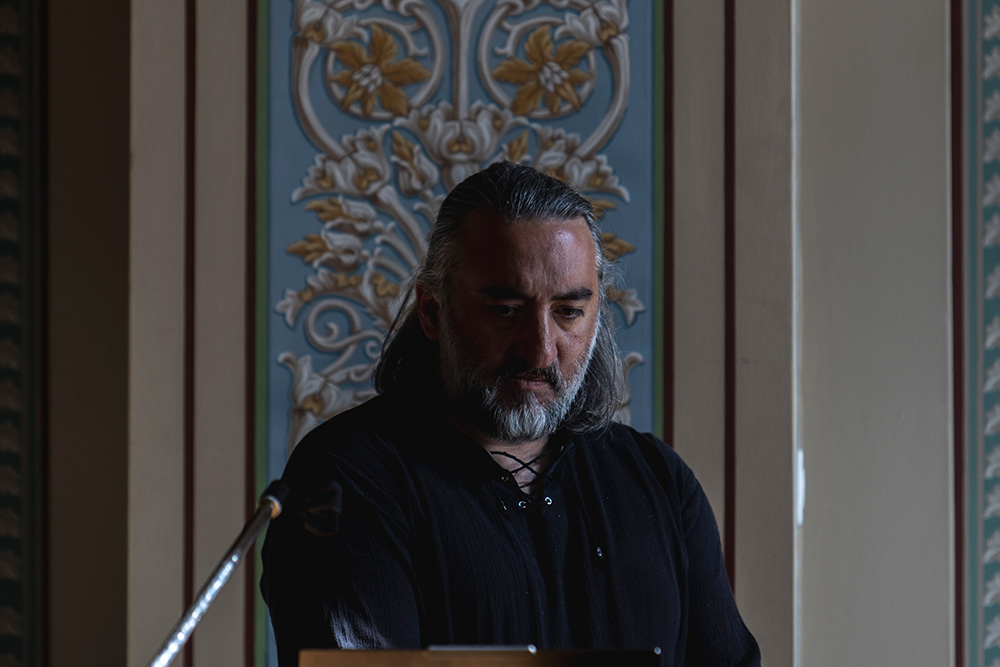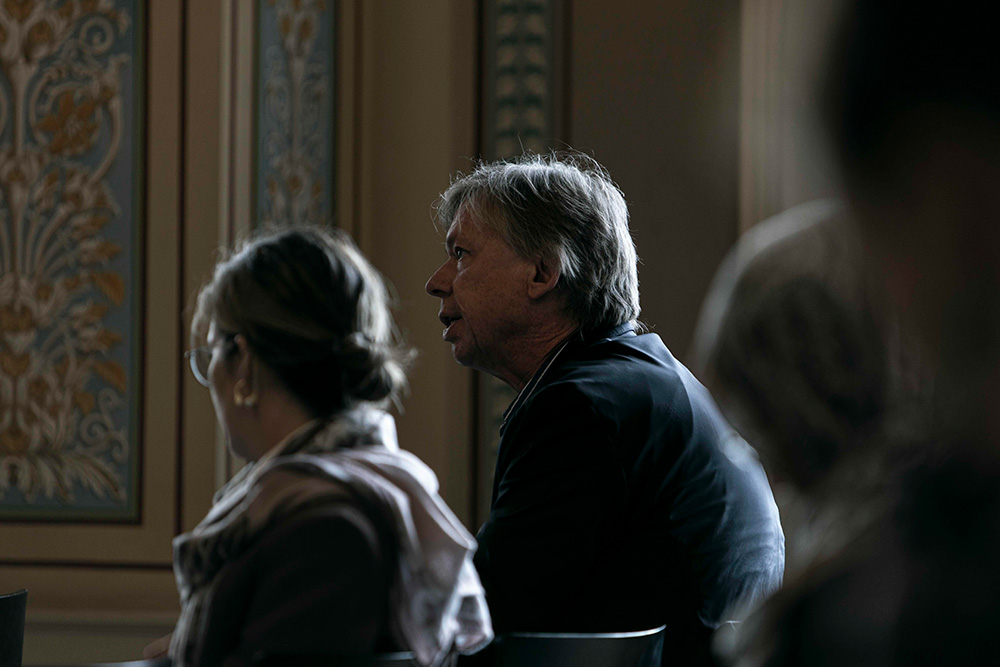Conference Report: Symposium "Digital Islam"
The symposium "Digital Islam" organized by Mira Menzfeld and Marie Jäckel as part of the URPP, and Dominik Müller from the Department of Religious Studies, took place on September 17, 2025, at the University of Zurich. The event brought together scholars from different interdisciplinary backgrounds (Religious Studies, Islamic Studies, Cultural Anthropology, Arabic Studies, Islamic Theology, Computational Studies) and international contexts (Switzerland, Germany, Kenia, Finland, USA, etc.) to explore the intersection of digitality and contemporary Islam from different perspectives. The goal was to foster a conversation that brings together the diverse range of current research on Islam and digitality - ranging, e.g., from theological interpretations of the Quran through AI, to Muslim self-improvement influencers, online debates on Islamic financing strategies, and antimuslim conspiracy theories in the online sphere.
The conference started with a welcome address by the hosts, and an introduction into the comparatively young research area of digital Islam by Mira Menzfeld.
The first panel had a focus on memory, portrayal and social media - with a talk of Akif Tahiiev on how Instagram is used to visually reimagine and politicize sacred history in contemporary Shiʿi contexts, and Lale Diklitaş on German-speaking Muslim actors who link narratives of Islamic history to their struggles and identities as a religious minority in Germany.
The program continued with a panel on manospheres and womenspheres of Salafis in the germanophone areas, and how these are co-shaped by digital phenomena. We heard a talk by Mira Menzfeld on how emotion management is important for the reception of ‘manfluencer’ Andrew Tate by Madkhali Salafis, and a presentation by Silvia Martens on authority negotiations, content preferences and group dynamics of Salafi women’s chat groups. Christoph Günther chaired both panels.
In the third panel, Dominik Müller gave a presentation on how raqis navigate and negotiate Islamic practice, legitimacy, and authority on- and offline. An Van Raemdonck talked about Muslim online entrepreneurship, religious routines, and the interdependencies of online and offline religiosities.
In a fourth panel on prompts and plattforms, Frank Peter talked about how online discourses on Islamic finance serve as a general example of discourse dynamics (namely, how discourses in religious contexts are thinned out by the participating persons), and Arif Dönmez together with Ibrahim Aslandur presented their study on the theological and epistemological implications of AI-generated responses regarding Islam in general and specific questions on ‘correct’ religious conduct in particular. Meltem Kulaçatan moderated these two thematic sessions.
In the afternoon, the fifth panel of the day focused on conspiracy theories online. This session and the following one were chaired by Hureyre Kam. We started with a talk by Marie Jäckel on anti-Muslim conspiracy theories in far-right online contexts, and an input about presentations of Satan in online responses to the Christchurch attacks by Riina-Julia Solman. In the last thematic block, Waithanji Mutiti examined how digital technologies are reshaping Islamic ritual practices in Kenya across different Muslim communities; afterwards, Ayse Keskin Saglam gave a presentation on how digital platforms not only mediate but also reconfigure Muslim piety and belonging, using the concept of “cyborg ummah”.
Dominik Müller concluded the symposium with reflective remarks that synthesized the thematic intersections among the various contributions and articulated a prospective trajectory for the evolving field of research into digital Islam.
The organizers would like to thank all presenters and chairs who co-shaped this inspiring meeting. Their fascinating fieldwork, thoughtful methodologies, elucidating analyses and stimulating questions gave a good idea of how diverse and relevant the still-young research area of the intersections of digitality and Islam presents itself. Currently, we are preparing an edited volume that will (hopefully!) mirror the variety, urgency, and insightfulness of how the symposium’s papers and discussions approached the field of digital Islam.
Author of this report is Marie Jäckel, member of the URPP project Exploring the Digital in Conspiracy Theories with Religious Elements
Photos: Gian-Berno Fark
